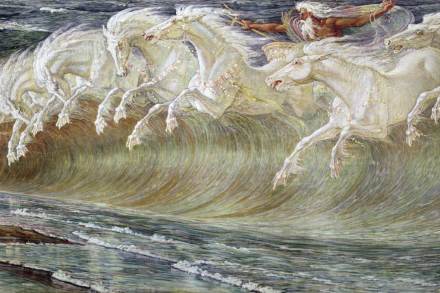Exotica, erotica, esoterica . . .
The humorist Paul Jennings suggested that book reviewers could be divided into five vowel-coded groups: batchers, betjers (‘Betjer I could have written this better than him/her’), bitchers, botchers and butchers. In this review of the year’s art books, I am primarily a batcher — dealing with several books at one go. But from time to time I shall take leave to be a bitcher, though not, I hope, a botcher or butcher. Two books stand out from the batch as absolute stars. Both are published by Prestel, a Munich-based publisher with tentacles in Berlin, London and New York. I am afraid either of the books will cost you £80, but






